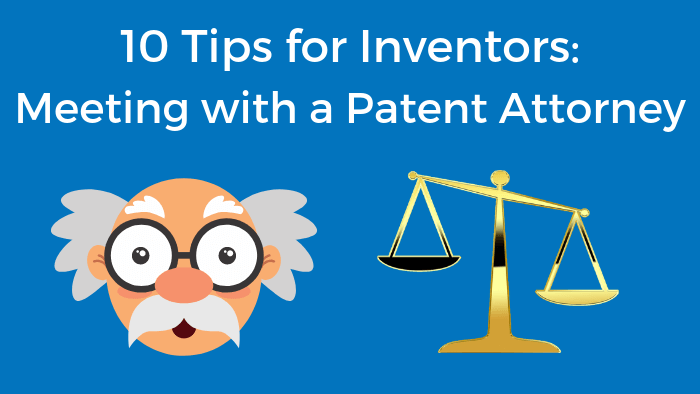Gone are the days of managing client relationships with simple spreadsheets and handwritten notes. Today, law firms are embracing sophisticated CRM systems to optimize their operations and stay competitive. The best CRM for law firms goes beyond basic contact management, offering features tailored to the unique demands of the legal profession, such as secure document sharing and conflict checking.
Toc
Why Law Firms Need a CRM

In an increasingly competitive legal environment, implementing a CRM for law firms is essential for enhancing client relationships and operational efficiency. Here are several compelling reasons why law firms should consider adopting a CRM system:
- Improve Client Communication and Engagement: A legal CRM centralizes client information, enabling personalized communication that fosters satisfaction and loyalty. By having all client interactions logged, attorneys can provide timely updates and maintain a proactive approach to client management. For instance, a CRM can automatically send birthday greetings to clients, schedule follow-up calls for specific milestones in a case, or trigger personalized email sequences based on client preferences. Some attorneys might argue that personalized communication requires a significant time investment, but CRMs can actually streamline this process by automating many tasks.
- Enhance Lead Management and Conversion: CRMs streamline the process of tracking leads, automating follow-ups, and converting prospects into clients. With features that allow firms to monitor lead sources and conversion rates, attorneys can refine their marketing strategies effectively. CRMs can integrate with legal directories, social media platforms, and websites to capture leads. They can then automatically nurture these leads with targeted content, track their engagement, and alert attorneys when a lead is ready to convert. While CRMs can automate lead management, some attorneys might prefer a more personalized approach to lead nurturing, which may require more manual effort.
- Streamline Case Management and Workflow: The best CRM for lawyers organizes case files, manages deadlines, and automates routine tasks. This not only improves efficiency but also reduces the likelihood of errors that can occur in manual processes. Optimizing case management with a legal CRM allows for seamless organization and collaboration among team members.
- Gain Data-Driven Insights for Informed Decision-Making: Legal CRMs provide valuable analytics regarding client behavior, marketing performance, and overall practice profitability. These insights enable firms to make strategic decisions backed by data. Some attorneys might be hesitant to use data-driven insights, fearing that they might dehumanize the client relationship. However, CRMs can provide objective data to inform decisions without compromising the personal touch.
Essential Features of a Legal CRM

When evaluating the best CRM for law firms, it is crucial to focus on features that cater specifically to the needs of legal practices. Below are some essential functionalities to consider:
Client Intake and Onboarding
A robust CRM streamlines the client intake process, transforming potential clients into loyal customers with ease. Key features include:
- Dynamic Lead Forms: These forms can be integrated into websites, allowing potential clients to submit their information effortlessly.
- Automated Workflows: CRMs facilitate lead nurturing through automated workflows that manage appointment scheduling and follow-up reminders.
- Secure Document Storage and E-Signature Capabilities: These features enhance the onboarding experience by allowing clients to review and sign documents securely online.
Case Management and Workflow
The best CRM for lawyers should also support effective case management. Essential capabilities include:
- Centralized Case Files and Document Management: This allows for easy access to all relevant documents and files, promoting collaboration among team members.
- Task Management and Deadline Reminders: Attorneys can set tasks and deadlines within the CRM, ensuring that no critical dates are missed.
- Communication Logs and Client Interaction History: Keeping a detailed record of all interactions helps attorneys maintain a clear picture of client needs and preferences.
- Collaboration Features for Team Communication: Effective communication tools within the CRM ensure that all team members are on the same page regarding case progress and client communications.
Client Communication and Engagement
A legal CRM enhances client interaction through various communication channels. Look for features such as:
- Automated Email and Text Messaging Campaigns: Personalized campaigns keep clients informed and engaged, enhancing their overall experience.
- Appointment Scheduling and Reminders: Integrated scheduling tools streamline the process of setting appointments and sending reminders to clients.
- Client Portals for Secure Document Access: These portals allow clients to securely access their documents and case information, improving transparency.
- Personalized Communication Based on Client Preferences: Tailoring communication strategies based on individual client preferences strengthens relationships and increases satisfaction.
Reporting and Analytics
Robust reporting and analytics capabilities are vital for any legal CRM. Key insights to look for include:
- Lead Tracking and Conversion Reports: Understanding where leads originate and how they convert can inform marketing strategies and resource allocation.
- Client Satisfaction Surveys and Feedback Analysis: CRMs can facilitate the collection of feedback, providing insights into client satisfaction levels and areas for improvement.
- Case Management and Workflow Efficiency Metrics: Analyzing case completion times and task efficiency helps identify bottlenecks and areas for optimization.
- Financial Reporting and Billing Insights: These features allow firms to track billing cycles, analyze revenue, and assess overall financial health.
The Best CRM for Law Firms: A Comprehensive List

Navigating the plethora of CRM options available can be overwhelming. Below is a curated list of the top CRM solutions specifically designed for law firms:
Lawmatics
Lawmatics is a comprehensive CRM tailored for legal professionals. It offers features such as client intake forms, matter management, document assembly, billing, and time tracking. With robust conflict-checking capabilities and integrations with popular accounting software, Lawmatics stands out as a powerful tool for law firms.
Clio
Clio is a leading cloud-based CRM known for its user-friendly interface and extensive feature set. It includes case management, document management, time tracking, billing, and client communication tools. Clio’s outstanding customer support and seamless integrations with other legal tools make it a top choice for many firms.
Zoho CRM
Zoho CRM is a versatile customer relationship management solution that caters to various industries, including law. With customizable modules and powerful automation capabilities, Zoho allows law firms to tailor the system to their specific needs. Its integration with other Zoho applications creates a cohesive ecosystem for managing client interactions.
Law Ruler
Designed specifically for law firms, Law Ruler focuses on streamlining lead management and the client intake process. It features integrated call-tracking systems, automated follow-ups, and seamless integrations with various marketing platforms and case management tools.
HubSpot
Although not exclusively a legal CRM, HubSpot offers valuable tools for law firms. It provides a centralized system for managing client relationships, tracking leads, and automating marketing and sales processes. Its user-friendly interface and extensive integration options make it a solid choice for firms looking to enhance their marketing efforts.
1. https://thegioiloaica.com/archive/9447/
2. https://thegioiloaica.com/archive/9446/
Salesforce
Salesforce is a well-known CRM that, while not specifically designed for the legal sector, offers extensive features and customization options suitable for law firms. Its capabilities in contact management, lead tracking, and marketing automation make it a viable option for many legal practices.
Tips for Choosing the Right CRM for Your Firm

Selecting the best CRM for law firms involves careful consideration of several factors:
Define Your Specific Requirements and Goals
Defining your firm’s specific requirements and goals is crucial before deciding on a CRM. Start by identifying the unique needs of your practice, such as the volume of cases handled, the size of your team, and the complexity of your client’s legal matters. Understanding these parameters will help you prioritize features that align with your operational workflows.
Evaluate User Experience and Interface
A user-friendly interface significantly impacts the overall adoption and usage rates within your team. Opt for a CRM that offers a clean, intuitive layout, minimizing the learning curve and enabling team members to quickly familiarize themselves with the system. Consider scheduling a demo or requesting a trial period to assess firsthand how the CRM functions in a real-world scenario.
Assess Integration Capabilities
Integration with other essential tools and software your firm relies on is another critical consideration. Whether it’s accounting software, email platforms, document management systems, or calendaring tools, ensuring seamless integration can streamline processes and reduce redundant data entry.
Compare Pricing and Licensing Models
The cost structure of CRM solutions can vary widely. Some systems operate on a subscription model based on the number of users or modules, while others may have one-time licensing fees. Be sure to evaluate the pricing plans in relation to the value offered by the features, and consider any additional costs for training, support, or future upgrades.
Check for Customization Options
Every law firm has its own set of processes and workflows, so the ability to customize the CRM to fit your practice can be incredibly valuable. From custom fields and tags to unique reporting and dashboard setups, the flexibility to tailor the system ensures it serves your firm’s needs effectively.
Consider Data Security and Compliance
Given the sensitive nature of legal work, data security should be a top priority when selecting a CRM. Look for solutions that offer robust security measures like encryption, two-factor authentication, and regular security audits to ensure compliance with legal data protection standards.
Seek Feedback and References
Lastly, reaching out to peers in the legal field for recommendations and reviews can offer invaluable insights. Learning about their experiences, the challenges they faced, and the benefits they gained from a particular CRM can guide you toward making an informed decision.
By thoughtfully evaluating these factors, you will be better equipped to choose a CRM system that enhances your firm’s efficiency, improves client satisfaction, and ultimately contributes to your practice’s success.
Frequently Asked Questions

Q: What are the benefits of using a CRM for law firms?
A: Utilizing a CRM can enhance client communication, improve lead management, streamline case workflows, automate tasks, and provide data-driven insights for better decision-making.
Q: How can I integrate a CRM with my existing website and marketing tools?
A: Many CRMs, including Lawmatics and HubSpot, offer seamless integration options with websites and marketing platforms, allowing you to capture leads and automate marketing efforts effectively.
Q: What are the key features to look for in a legal CRM?
1. https://thegioiloaica.com/archive/9443/
2. https://thegioiloaica.com/archive/9447/
A: Essential features include client intake and onboarding, case management capabilities, client communication tools, and robust reporting and analytics functionalities.
Q: How much does a legal CRM typically cost?
A: The pricing for legal CRMs varies widely based on features and customization needs, ranging from a few dollars per user per month for basic solutions to several hundred dollars for advanced enterprise-level CRMs.
Q: What tips can help me choose the right CRM for my firm?
A: Key tips include clearly defining your requirements, assessing your budget, evaluating the user interface, considering integration options, requesting demos, reading reviews, and seeking expert advice.
The Future of Legal CRMs

The future of legal CRMs looks promising as they continue to evolve to meet the growing demands of modern law firms. One of the key trends is the increasing integration of artificial intelligence (AI) and machine learning (ML) into CRM systems. These technologies can provide predictive analytics, automate administrative tasks, and offer insights into client behavior, helping firms to be more proactive in their client relationships.
Another important development is the shift towards cloud-based solutions. Cloud CRMs offer greater flexibility, allowing legal professionals to access client information and case details from anywhere, at any time. This can be particularly beneficial for firms with remote teams or those looking to enhance their mobility.
Additionally, as data privacy regulations become stricter, legal CRMs are placing a greater emphasis on security features. Advanced encryption methods, multi-factor authentication, and compliance management tools are becoming standard to ensure that sensitive client information is well-protected.
User experience (UX) is also at the forefront of CRM development. Modern CRMs are focusing on creating intuitive and user-friendly interfaces that reduce the learning curve and increase adoption rates among legal professionals. Customizable dashboards, drag-and-drop functionality, and seamless integrations are just a few examples of how UX is being enhanced.
Moreover, the integration of CRMs with other legal technologies such as e-discovery tools, contract lifecycle management systems, and legal research databases is becoming more seamless. This creates a more cohesive and interconnected digital ecosystem, allowing for more efficient data management and collaboration within law firms.
Lastly, automation continues to be a significant trend, with CRMs offering more advanced workflow automation capabilities. From automated email campaigns and task reminders to sophisticated client interaction tracking, the aim is to reduce the administrative burden on lawyers and enable them to focus more on high-value legal work.
In summary, the future of legal CRMs is geared toward leveraging advanced technologies to provide deeper insights, enhance security, improve user experience, and increase overall efficiency for law firms. As these systems become more sophisticated, they will undoubtedly play an integral role in the transformation and modernization of legal practice management.
Conclusion
Investing in the best CRM for law firms is a strategic move that can significantly enhance your practice’s efficiency, client relationships, and overall success. By thoroughly evaluating your needs and exploring the available solutions, you can implement a CRM that not only meets your current requirements but also supports your firm’s growth in the future. Take the time to consider the options discussed in this article and make an informed decision that will benefit your firm for years to come.















